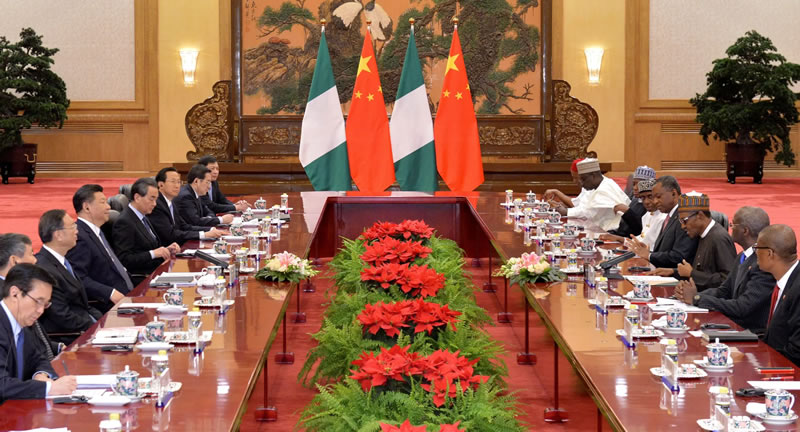By Ajike Njoku (Edited)
“If a country goes bankrupt and can no longer pay its debts, what will happen? Will the country be colonized by its debtors?
For those that cared to know about the worsening situation of Nigeria’s debt profile and what may happen should the supporters of the managers of the country continue to celebrate and justify every money they borrow and keep borrowing from China and the rest, as long as their circles is adequately guarded from the underprivileged environmental condition they have subjected their people to.
Take your time to read this brief history and let it sink.
In 1917, Vladimir Lenin and his Bolsheviks seized control of the Russian government and formed the “Soviet Union”. Now, the previous Tsarist and “Menshevik” governments had issued massive quantities of debt, much of it to pay for their involvement in World War I.
Russian imperial debt was considered blue-chip AAA rated security as Russia was the fourth largest economy in the world and the Tsar was the richest man in the world.

Lenin defaulted on all of it. They also seized all foreign assets in the country and nationalized all financial institutions.
In 1996, the Russian Federation eventually paid back a little on those bonds – a total of $400 million. They had a face value of about $200 billion.
Now, this didn’t come without a price. After the announcement, the Allied powers of the west denounced the Russian government and started backing the anti-Bolshevik forces in the Soviet Union. The Soviet Union wasn’t recognized as a legitimate government until 1933.
In addition, the ruble (Russian Curreny) was allowed to float and there was hyperinflation in the 1920s as the Bolsheviks printed cash to pay for their civil war.
The Soviet Union managed to get its finances in order and soon revalued the currency during the same period the Germans had hyperinflation. It grew to become the second greatest superpower in the world and lasted from 1917 to 1991 when it dissolved.
As at about March 31, 2021., Nigeria’s debt stood at $87.239 billion dollars, Debt servicing obligations alone gulped 97% of this sum. Out of this sum, Nigeria owed China $3.402 billion as of March 31, according to the Debt Management Office, this figure should be the least of Nigeria’s headache, however, Nigerians have continued to express grave concerns at the continued borrowing from China whose style of taking back its money continued to be portrayed in a manner similar to the Macbeth’s shylock pound of flesh.
In 2020, a report according to BudgIT, a civic-tech non-profit organisation, shows that of the N3. 42 trillion generated as revenue, The Nigeria government expended N3. 34 trillion on debt servicing. In 2018, Zambia’s sovereignty was threatened as Chinese creditors began to prove tough in reclaiming their money. China, among other things threatened to take over Zambia’s national electricity company, ZESCO alongside its broadcasting company, ZNBC and also making frantic effort to take over some mining concessions.
The problem is; China is deliberate about its policy in Africa. It understands the development deficit on the continent and the integrity issue of Africa’s rulers and it is strategically using this wisely to offer quick loans to people like the Nigerian ruler who continue to run to China for loans upon loans that China is not likely to hesitate to give if that will guarantee a quick repeat of what’s unfolding in Zambia.
Since Nigeria is unable to manage its enormous natural resources and population by converting this to wealth, China arguably stands a chance to keep the future of Africa’s economic giant under its arms as the vulture waits patiently for the dying.






